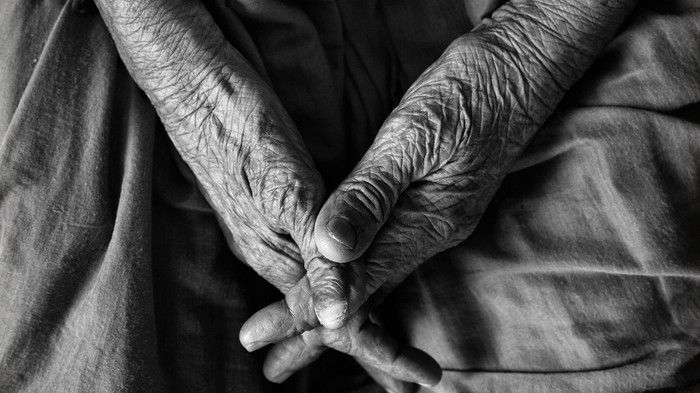Jul 8, 2015
Immortality Bus with Presidential Candidate Zoltan
Posted by Zoltan Istvan in category: life extension
My newest initiative I’m very excited about. Please support it and contribute to it! Thanks!
My newest initiative I’m very excited about. Please support it and contribute to it! Thanks!
Mark Zuckerberg was on Facebook last night conducting his regular Townhall Q&As, with a few not-so-regular people including Stephen Hawking and Arnold Schwarzenegger.
Of the celebrity cast, Hawking was the only one who diverted the social media titan’s attention to science, asking him:
My latest story for Vice Motherboard: Is it time to start phasing out the institution of marriage now that we’re soon going to be living indefinitely? And what are the rules with marrying robots?
I’m helping to announce a public transhumanist and life extension rally and gathering this Saturday, June 27th at Sue Bierman Park in San Francisco (we’ll be meeting at Justin Herman Plaza in the Sue Bierman park). It’ll start at 2PM sharp and go for a few hours. Maria Konovalenko, myself, and others will be giving short speeches and talking to the public about transhumanism and the importance of longevity research. There is a notable TV channel with a large film crew that is… scheduled to film the event (I just met with them all this evening). Please wear orange or black (Transhumanist Party colors), and there will be a limited amount of free t-shirts and bumper stickers available. Check out the event page and please join us! This is an excellent opportunity to put transhumanism on TV. Thanks!
I have mentioned mTOR as one of the main aging genes on multiple occasions. It’s about time I tell you what it is, what it does and why it is so important in aging.
mTOR has a little m in front of TOR, which means I am speaking about mammals. It technically means «mechanistic» TOR, but think of it as the molecule that mice and all of us have, whereas in worms is it just TOR.
mTOR gene produces one mTOR protein that can act in two pretty different ways. mTOR does so, because it forms two complexes with other molecules. These complexes are called mTORC1 and mTORC2. Yeah, I know, it’s a lot of letters, but C1 and C2 stand for «complex 1» and «complex 2», so it kinda makes sense.
Continue reading “The mTOR Story Part 1 — What Makes This Important Pro-Aging Molecule Active?” »

“When resources are scarce, a species as a whole has a better shot at surviving if its populations are organizing themselves to promote long term survival with shorter individual lifespans. They are evolving to combat overpopulation and overconsumption, basically…humans could be living a lot longer than they do now—we have, after all, inherited a lifespan from times when our forebears were eking out an existence as scrappy hunter gatherers” Read more
Something amazing has happened! We have launched our Longevity Cookbook Indiegogo Campaign.
Aging steals away your most valuable resource: time. The Longevity Cookbook is a strategy guide to help you get more time to experience the joy from everything that you like in life. Take yourself on a journey starting with nutrients and exercise regimes that goes on to exploring the usage of genetically modified symbiotic organisms and using gene therapy to boost your own longevity.
A team of Massachusetts General Hospital (MGH) investigators has made the first steps towards development of bioartificial replacement limbs suitable for transplantation They had used decellularization technique to regenerate kidneys, livers, hearts and lungs from animal models, but this is the first reported use to engineer the more complex tissues of a bioartificial limb.
They took the leg from recently deceased rat and then:
* Over a period of 52 hours, infusion of a detergent solution removes cells from a rat forelimb, leaving behind the cell-free matrix scaffolding onto which new tissues can be regenerated.
Continue reading “Next Big Future: Conceptually Viable Brute Force Radical Life Extension” »
Curing aging has 4 stages: mild aging deceleration, dramatic aging deceleration, achieving negligible senescence and rejuvenation. Today we can definitively claim that the task of mild aging deceleration is theoretically solved.
We know the drugs and interventions that slow down aging in mammals. The only thing that we don’t know is dosages, regimes and drug combinations. Defining all of that is the goal of pre-clinical and clinical studies. They can be started immediately. It is also a good idea to do clinical studies of various diets aimed at improving human longevity.
Dramatic aging deceleration will be achieved using gene therapy. Breakthrough studies of lifespan extension in old model animals happened in this area quite recently. We know the genes and delivery methods, now we need a set of powerful experiments aimed at radical life extension. The subject of the intervention will not only be the human genome, but the genomes of the human microbiota.
A long interview from Esquire on transhumanism, AI, life extension, my campaign, and thoughts on the future.
